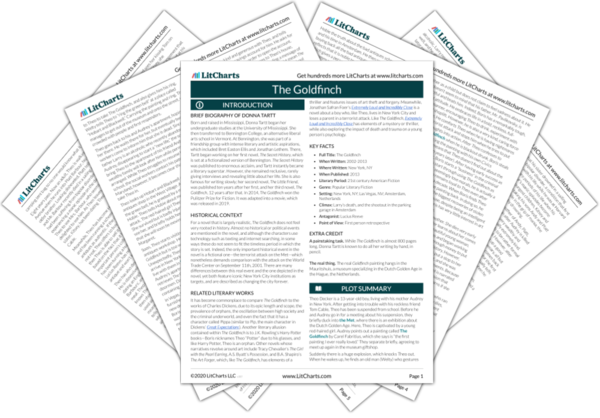’s days are so similar that time passes quickly. At night he reads
Eugene Onegin or one of the many furniture books that had belonged to . The time he spends in the workshop with passes mostly in silence, but he never feels lonely, and even comes to feel that he and Hobie have developed a form of wordless telepathy. Hobie tells Theo that when he is repairing an antique, the person he is truly trying to “impress” is the restorer who will be working on the piece 100 years into the future.
